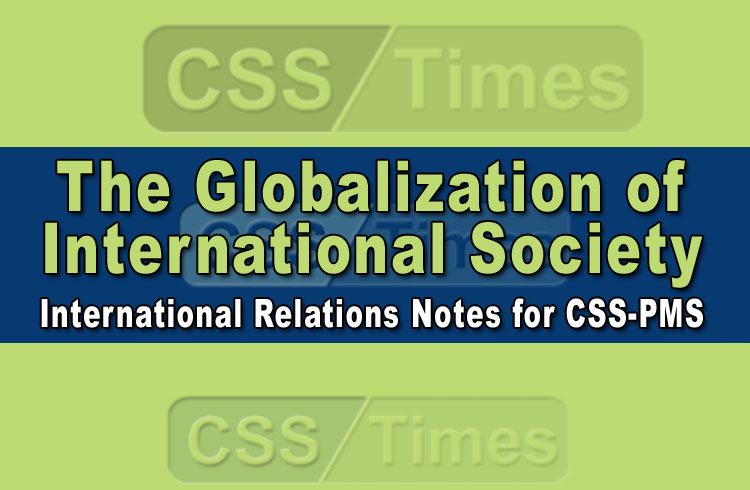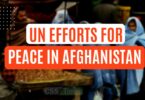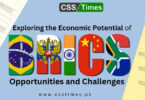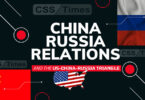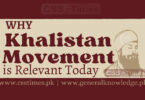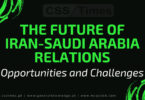The spread of European political control beyond Europe which began in the late fifteenth century and only came to an end in the early twentieth century proved to be an expansion not only of European imperialism but also, later, of international society Indeed, the history of European imperialism and the ‘globalization of international society^ are fundamentally intertwined. The history of modem Europe is—in very significant part—a history of political and economic rivalry, particularly war between sovereign states, and subsequent expansion into and engagement with the non-European world. European rivalries were conducted wherever European ambitions and power could be projected—i.e. eventually on a global scale. During this period, the logic of capitalism meant that European states entered into competition with each other to penetrate and control economically desirable and militarily useful areas in other parts of the world. To an important extent, then, the histories of the European and non-European worlds are fundamentally intertwined in ways not always captured by traditional understandings of the European ‘society of states’
Until the nineteenth century large-scale wars were fought by the militarily and economically powerful European states outside Europe. Non-European territories and populations came under the control of European governments by conquest or occupation, and were sometimes transferred from one European state to another as happened in the case of French Canada which the British annexed at the end of their successful Seven Years War with France (1756-63). From the perspective of the Europeans a ‘remarkable achievement of the nineteenth-century Concert of Europe—a balance-of-power coalition originally formed by the Great Powers that defeated Napoleon (Britain, Austria, Prussia, and Russia)—was their avoidance of war in the course of their competitive expansion outside Europe. This was in marked contrast to ‘the incessant acts of war against each other overseas in previous centuries’ It was also in contrast to the social and economic devastation suffered by non-Europeans as a result. European definitions of international law, diplomacy, and the balance of power thus came to be applied around the world and not only in Europe or the West. By the late nineteenth century continents previously inaccessible to European penetration, like the interior of Africa, were under the jurisdiction and manipulation of European powers.
Not every non-Western country fell under the political control of a Western imperial state. But those countries that escaped were still obliged to accept international law and follow the other diplomatic practices of European-defined international society. For a discussion of the resistance of the Ottoman Empire Japan elected to do the same a little later although without the same compulsion and humiliation. Japan successfully acquired the persona and substance of a modern power and by the early twentieth century had defeated the Russian Empire in a major war and had become a colonial power itself. China was subjected to extensive territorial encroachments by European states, the United States, and Japan, and did not acquire full membership in international society until 1945 at which time China became a permanent member of the UN Security Council. Most other non-Western political systems were not able to resist Western imperialism and lost their independence as a result. That proved to be the case throughout South Asia, South-East Asia, most of the Middle East, and virtually all of Africa, the Caribbean, and the Pacific.
The second stage of the globalization of international society was via reactive nationalism and often violent anti-colonial struggles. In that reaction, indigenous political leaders often made the political calculation to base their claims for decolonization and independence, in part, on European and American ideas of self-determination. That involved a further claim for subsequent equal membership of a universal international society open to all cultures and civilizations without discrimination This anti-colonial ‘revolt against the West’, as Hedley Bull put it, was the main vehicle by which international society expanded after the Second World War. In a short period of some twenty years, beginning with the independence of India and Pakistan in 1947, most colonies in Asia and Africa became sovereign states and full members of the United Nations. European decolonization in the
Third World more than tripled the membership of the society of states from about fifty to over one hundred and sixty. To some extent, however, the penetration of the global South by European and Western interests, economic and military, after decolonization has matched that experienced under direct colonialism. The final act of European decolonization that completed the globalization of international society was the dissolution of the Soviet Union at the end of the cold war. Here self-determination was based not on overseas colonies but, rather, on the internal bor¬ders of the former Russian (Tsarist) Empire which the communists took over and preserved after their revo¬lution in 1917. Those old Russian imperial frontiers thus became new international boundaries. The dis¬solution of the Soviet Union together with the sim¬ultaneous break-up of Yugoslavia, Ethiopia, and Czechoslovakia increased the number of inter¬national states to well over one hundred and eighty. Until the US occupation of Iraq in 2003, there emerged one continuous international society of global extent—without any intervening gaps of isolated aboriginal government or imposed colonial jurisdiction and also without any external hegemons. This juridical international society was based on local territorial sovereignty and a common set of rules the most important of which are embodied by the United Nations Charter. Since the invasion and occupation of Iraq, however, questions have been raised about the viability of the notion of ‘inter¬national society’ in the context of US hegemony and absolute military preponderance (Dunne 2003; Barkawi 2004).
Conclusion: problems of global international society
As written in the UN Charter, the core values and norms of the contemporary global society of states are international peace and security, state sovereignty, self-determination, non-intervention, non¬discrimination and generally the sanctity, integrity, and inviolability of all existing states regardless of their level of development, form of government, political ideology, pattern of culture, or any other domestic characteristic or condition. When under¬stood this way, these values and norms can be seen as embodying and expressing the global covenant of contemporary international society. However, serious questions about this construct of universal state sovereignty can be raised, some of which are unprecedented in history. Only the most important can be discussed briefly as a conclusion to this chapter.
First, given the European origins of ‘inter¬national society’ there is a noteworthy absence of a common underlying culture to support any global international society that might cut across all the major cultures and civilizations. There is no worldwide cultural support comparable to Christianity or European civilization, which helped sustain European-cum-Western international society. Perhaps the Western norms and values of capitalism, human rights discourses, and liberal democracy can provide that support if they become universalized or imposed. They are certainly avowed by the most powerful states of the present era, such as the members of the OECD. And as witnessed with the US-led invasions of Afghanistan (2001-2) and Iraq (2003), where Western-style democracy has been forcibly imposed, the willingness of powerful regimes to extend political influence in the non-Western world endures. But the fact remains that other important states including some in East Asia and many in the Middle East dispute some of these norms and values and the suggestion that they are always observed by Western states themselves. Moreover, as 9/11 made clear, the once seemingly inexorable process of cultural assimilation under globalization has not prevented the emergence of an Islamic resistance movement to Western influence in the Middle East.
Second, if the global covenant is going to be sup¬ported in the future, that support is likely to be widely forthcoming only if its core norms and values respond to the interests and concerns of the vast majority if not all the members of contemporary international society and the people whom these states ostensibly represent. This probably requires that the currently dominant norms of capitalism and Western-style liberal democracy be divorced or at least distanced from the norms and values of any particular culture, including that of the West. All members still clearly and publicly avow the wider range of core norms such as the rule of law most of which are incorporated into regional international organizations, such as the Charter of the Organization for African Unity (Brownlie 1971: 2-8). How¬ever, the Western origins of these ‘international society‘ norms seem all too evident given the extent to which they also uphold the continuing economic and political subornation of the global North over the global South.
Third, although in juridical terms the world is divided into formally equal sovereign states, it in fact contains huge substantive inequalities between member states, particularly between the rich OECD states and the poorest Asian and African states. Moreover, there is great inequality within the oil- rich states of the Middle East. An unprecedented theory and practice of international aid has emerged alongside this socio-economic disparity in which rich states are called upon to help ameliorate poverty in poor states. On one level, this has changed the ethos of international society. The traditional ethos in relation to poor states, immediately after the period of colonial exploitation, was national self-reliance and reciprocity. The new ethos and self-perception of wealthy states is international benevolence and non-reciprocity. This is ironic, as Ch.29 of this volume suggests, for despite unprecedented official development policies, ‘global polarization is increasing, with the economic gap between rich and poor states and people growing’.
Fourth, the regional diversity of contemporary global social relations is far more pronounced than that of European international society or any other previous society of states. ‘The result is a form of international Pluralism based on the social construction of regions or groupings of states, such as South-East Asia, Western Europe, Latin America, or Africa, which share a geographical region arid may also have cultural affinities and an interconnected economic life. If the regional-cultural Pluralism of the world is to be accommodated then global social relations cannot be encumbered with intrusive norms and values of a particular culture, including those of the Western democracies. This is currently not the case.
Fifth, since 1945 there has been a definite freezing and sanctifying of international boundaries as the globe has been enclosed by local sovereign jurisdiction. For this and other reasons, states have been discouraged from engaging in acts of overt aggression or armed intervention in other states with a view to territorial expansion. These were not uncommon practices of historical European international society, with recurrent wars fought between them in the global South over territory and other issues. Moreover, the penetration of Western power and interests into the global South has not ceased with the end of territorial expansion; it has simply taken on different forms. However, what the establishment of juridical sovereignty has created is a barrier to the formation of new jurisdictions and this has directly contributed to some of the violent conflict we see today. For example, the effective prohibition on reshuffling certain territorial jurisdictions in response to changing socio-political identities and demands for national self-determination have led to wars in places such as Bosnia-Herzegovina and Kosovo.
Sixth, the doctrine of non-intervention has created an inversion of the traditional security dilemma in many states particularly post-colonial and post-communist states. In those states the security threat is more likely to come from within: the prevailing pattern of warfare is internal rather than international In more than a few sub-Saharan African countries, for example, the main security threat comes from armed rebels or from the government, or both, which often hold citizens hostage in what are referred to as failed or collapsed states Although powerful states have frequently superseded the ‘right’ to state sovereignty of weaker states, the doctrine of non-intervention has in other instances appeared to make it difficult for international society to address the problem. It is also difficult to institute some kind of international trusteeship for obviously failed states, such as Somalia, owing to the fact that the institution and law of trusteeship which currently exists is designed for colonies and not for independent countries. This partly explains the legal quandary surrounding the US occupation of Iraq after the 2003 invasion. International society currently has no generally accepted procedures for o dealing with the problem of failed states. Only when u it seems to be in the geostrategic interest of powerful states such as the United States is there an effort to c force ‘regime change’, such as the intervention to- d facilitate the exile of elected President Aristide from a . Haiti in 2004
Seventh, global international society may be c evolving into some form of world society, both c organizationally and normatively, which differs significantly in several important respects from previous international societies. For some this involves: cosmopolitan norms, such as human rights, which sanctify and indemnify human beings regard- i less of their citizenship. It involves global norms such as environmental protection, which place new responsibilities, legal as well as moral, on sovereign states, particularly those states with the greatest capacity to cause pollution. And it involves a rapidly expanding role for non-governmental organizations (NGOs), such as Greenpeace or Amnesty Inter¬national, which are assuming growing importance in world politics. For many, however, the notion of world society also involves new threats and inequalities, which seem to coexist easily with the more positive norms just mentioned. We have already referred to great disparities in wealth. In addition, the apparent unwillingness of some powerful states to abide by international environmental agreements was made evident by the US decision to withdraw from the Kyoto Protocol The United States has also refused to participate in the International Criminal Court.
Finally, this tendency for international society to evolve into a world society raises important questions about the continuing primacy of state sovereignty. Many of these issues are raised in other chapters in this book and cannot be dealt with at length here. Suffice it to say, state sovereignty has been a defining characteristic of international politics for three hundred and fifty years. However, it is not a static institution. On the contrary, it is a dynamic institution and it continues to evolve. For example, at one time dynastic families held state sovereignty, but today it is the collective entitlement of entire national populations.
At one time sovereign states had a right to initiate aggressive war in pursuit of their self-defined interests, but that right has usually been denied and extinguished by the twenty- first century. At one- time sovereign states could control foreign populated territory as colonial dependencies. That right has been extinguished for all states apart from the United States or a coalition of US-led states under the authority of the UN. Many other examples of state sovereignty as a dynamic, evolving institution could also be given. But perhaps these examples are sufficient to make us sceptical about claims that world politics is moving beyond state sovereignty. It is far more likely that state sovereignty is evolving yet again. Martin Shaw (2000), for example, argues that supranational institutions represent the beginning of a new form of ‘international’ state power or a ‘global-Western state conglomerate’. Still others point to the emergence of new form of ’empire’, with the United States at its core that is made up of a new form of ‘post-modern’ sovereignty
Historical change is ongoing, the dust is swirling all about, and it will be some time before anyone can get a clear view of this fundamentally important issue of state sovereignty and changing forms of global power.
“International politics, like all politics, is a struggle for power”
― Hans J. Morgenthau, Politics Among Nations
Check Our Complete collection for International Relations Notes
- The US-China Rivalry: What You Need to Know
- UN Efforts for Peace in Afghanistan: Current Activities and Future Prospects
- Exploring the Economic Potential of BRICS Countries: Opportunities and Challenges
- China-Russia Relations and the US-China-Russia Triangle
- Why Khalistan Movement is Relevant Today
- The Future of Iran-Saudi Arabia Relations: Opportunities and Challenges
- The World Wars: A Global Struggle for Power and Ideology
- Mastering CSS with International Relations: A Winning Combination
- Pakistan’s Place in the Global Community: A Look at its International Relations
- Diplomacy in Action: Understanding Pakistan’s International Relations

